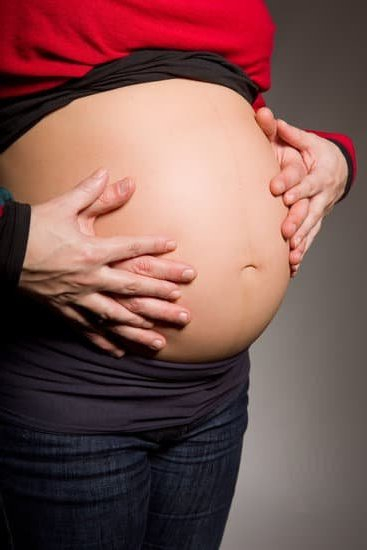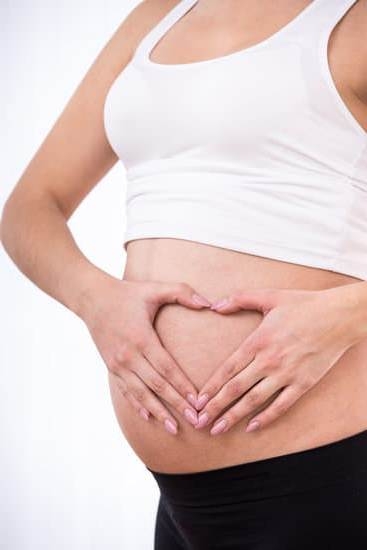Extreme Tiredness In Early Pregnancy
Extreme tiredness is a common symptom of early pregnancy. While there can be many causes for fatigue during pregnancy, the most likely explanation is the increase in the hormone progesterone. Progesterone is responsible for many of the symptoms of early pregnancy, including fatigue, nausea, and breast tenderness.
Other factors that can contribute to fatigue during pregnancy include changes in your daily routine, such as getting up to go to the bathroom more often, increased blood volume, and anemia. If you are experiencing extreme tiredness, make sure to get plenty of rest and eat healthy foods.
If your fatigue is accompanied by other symptoms, such as vaginal bleeding, pain, or cramps, contact your health care provider immediately. These could be signs of a problem, such as an ectopic pregnancy.
Cramping And Lower Back Pain In Early Pregnancy
Cramping and lower back pain are common complaints during early pregnancy. These symptoms can be caused by a number of different factors, including implantation, changes in the uterus, and hormones.
Implantation occurs when the embryo attaches to the uterine wall. This process can cause cramping and back pain. The uterus begins to grow and change as the pregnancy progresses. This can also cause cramping and back pain. Hormones such as progesterone and relaxin are produced in higher levels during pregnancy. These hormones can cause the ligaments and muscles to relax, which can lead to cramping and back pain.
If you are experiencing cramping and back pain during early pregnancy, be sure to drink plenty of fluids and rest. If the symptoms are severe or do not improve, contact your healthcare provider.
Bleeding In Early Pregnancy
Bleeding during early pregnancy is a common occurrence. It occurs in about one out of every four pregnancies. Many times, the bleeding is due to a minor cause and does not indicate a problem. However, bleeding during early pregnancy can also be a sign of a more serious problem.
Bleeding during early pregnancy can occur for a variety of reasons. The most common cause is a miscarriage. A miscarriage is the spontaneous loss of a pregnancy before the baby is born. Miscarriages occur in about fifteen percent of all pregnancies.
Other causes of bleeding during early pregnancy include ectopic pregnancy, implantation bleeding, and placenta previa. An ectopic pregnancy is a pregnancy that occurs outside of the uterus. An implantation bleed is a spotting that occurs when the fertilized egg attaches to the wall of the uterus. Placenta previa is a condition in which the placenta covers the opening of the uterus. This can cause serious bleeding during pregnancy.
If you experience any bleeding during early pregnancy, it is important to see your doctor. Bleeding can be a sign of a serious problem, such as a miscarriage or an ectopic pregnancy. Your doctor can determine the cause of the bleeding and provide the appropriate treatment.
Early Pregnancy Symptoms Eyes
may be puffy and swollen.
The eyes may be puffy and swollen during early pregnancy because of the increase in estrogen and progesterone. These hormones cause the body to retain more fluid, which can lead to swelling in the face and around the eyes.
Cervical Fluid Early Pregnancy
The cervix is the lower, narrow end of the uterus that opens into the vagina. The cervix is made of muscle and fibrous tissue and is covered by a thin layer of skin. During pregnancy, the cervix becomes softer and more elastic as the body prepares for labor.
Cervical fluid is a naturally-occurring secretion that helps to protect the vagina from infection. Cervical fluid changes throughout the menstrual cycle in response to hormone levels.
In early pregnancy, cervical fluid may change in amount and consistency. It may become thicker and more opaque, and may have a white or yellowish color. This is a normal change caused by the increase in hormone levels during early pregnancy.
Thicker cervical fluid helps to protect the uterus from infection and can provide a hospitable environment for sperm. It also helps to keep the vagina moist, which is important for sperm survival.
If you are trying to conceive, monitoring your cervical fluid can be a helpful way to track your fertility. If you notice a change in the amount or consistency of your cervical fluid, this may be a sign that you are pregnant.

Welcome to my fertility blog. This is a space where I will be sharing my experiences as I navigate through the world of fertility treatments, as well as provide information and resources about fertility and pregnancy.





